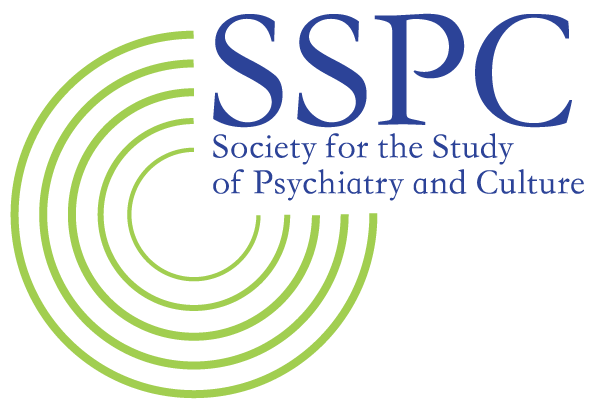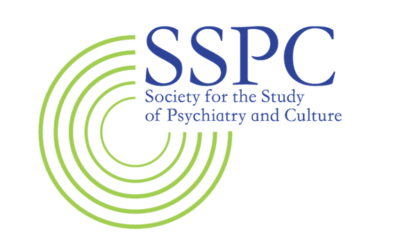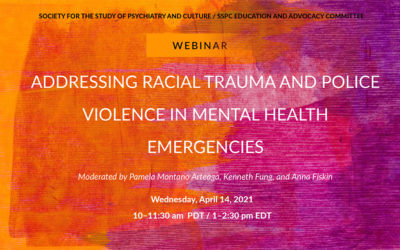Abstract Submission Deadline: September 15, 2014
Culture and Global Mental Health
The theme of the annual meeting is Culture and Global Mental Health. We are particularly interested in submissions based on clinical activities, teaching, and research that address the relationship between cultural psychiatry and global mental health, including issues pertaining to mutual contributions, challenges, and collaborations. We also welcome papers, symposia, workshops, and posters in other clinical, education, and research areas of cultural psychiatry. The deadline for abstract submission is September 15, 2014. Abstracts should be submitted to PSYCHCULT2015@gmail.com. Potential speakers are urged to submit abstracts as soon as possible. Submissions should consider how their proposal fits with one of the five core areas and four cross-cutting issues highlighted for the 2015 Annual Meeting:
- Origins and transformations of knowledge and practice
This core area examines issues of epistemology and ontology in cultural psychiatry and global mental health. How is knowledge generated, how are concepts defined, and which individuals and institutions have the power to define concepts in psychiatry and global mental health? What values influence and are reflected in global mental health priorities and practice? What roles and power do mental health service users, other persons living with mental illness, families, and communities have in influencing local and global mental health activities? How do epistemology, ontology, and value systems influence what is measured and counted through epidemiology and health economics? Ultimately, how does knowledge move between the local and the global? - Human rights, ethics, politics, and policy
This theme explores how ethical, political, and rights-based documents and doctrines influence the practice of psychiatry and global mental health. How do international policies, programs, and institutions (e.g., United Nations’ bodies, the World Health Organization, humanitarian organizations) frame human rights, and how is this reflected at local and national levels? How do ethical guidelines for clinical care, training, and research (or lack thereof) influence our practice? - Social determinants of mental health and health care
This theme traces how social and economic conditions and forces inform both mental health problems and mental health services. How do globalization, poverty, international development, health industry priorities, and political economy inform both problems and solutions in driving mental health problems and mental health practice? - Intervention development and cultural adaptation
How are interventions selected, developed, and tested in psychiatry and global mental health? What constitutes an evidence base for selecting interventions? What is the process for cultural adaptation, and how are cultural adaptations unique (or not) compared to other types of adaptations? How do indigenous or local interventions, systems of medicine, and sources of resilience fit with the aims of psychiatry and global mental health? - Scaling-up, implementation, and knowledge dissemination
How do interventions and practices go from proof-of-concept to large-scale implementation? What and who are the powers that determine worthiness for scaling-up and what benchmarks do they use? How is care implemented in a collaborative framework with other stakeholders ranging from primary care workers to partnerships with advocacy groups, mental health service users, families, and communities? How do objectives of cultural specificity and scalability impact one another?
In addition, there are cross-cutting issues that may play a part in each of the above:
- Knowledge transfer between and among low- and middle-income countries (LMIC) and high-income countries (HIC)
How are knowledge and lessons learned transferred from high to low-resource settings and vice-versa? How is knowledge transferred among low-resource settings, e.g. South-South collaborations? - Technologies
This includes the use of guidelines (e.g., mhGAP, DSM, IASC guidelines), digital technologies (e.g., mobile phones, internet-based communication platforms), and biotechnologies. - Stigma
Stigma influences activities and programs from the level of clinician-patient interactions to policy-making and implementation. -
Populations and predicaments
For each of the areas, the specific populations should be defined. For example, are program beneficiaries defined by specific disorders, risk factors, or other context or health-related factors?Submissions with qualitative and quantitative primary data and clinical encounters will be given preference over position pieces. The goal of the conference is to advance dialogue in cultural psychiatry and global mental health that is grounded in firsthand experience with research, teaching, clinical activities, public health interventions, policy- making, and other activities.
As a guideline, designated keynote presentations will be 40 minutes long, followed by 20 minutes of discussion, for a total of one hour. Individual papers and symposia consisting of 3 presentations will be 2 hours long, with 30 minutes for each presentation plus 30 minutes for discussion of all the papers. In all cases 25% of the time must be allocated for discussion. This is an ACCME requirement as well as a request from many of the attendees of the 2014 meeting. In response to your evaluations of this year’s annual meeting we are very interested in receiving proposals for interactive workshops, especially in areas where skill building or attitude modification are key.
Instructions for Authors
All proposals must include the information below:
1. Identifying information (name, affiliation, contact information) of all authors, with the presenting author so identified
2. Title of presentation
3. Abstract, composed of three parts
- 1-3 learning objectives
- Narrative abstract, up to 200 words
- 1-3 related references
4. Classify your presentation by type, according to the following options:
- Research
- Education and Training
- Clinical
- Theoretical/conceptual
- Policy
5. Indicate whether your abstract is a general submission or whether it focuses on Culture and Global Mental Health and which of the five areas it addresses.
6. For an organized symposium, there should be one joint submission that includes (a) the organizer’s identifying information, (b) the symposium title, (c) the symposium abstract (including text, learning objectives, and related references), and (d) the information for each paper within the symposium (presenter, title, abstract).
7. Please indicate whether your submission is for a poster only or whether you would like it to be considered for presentation as a poster if we are unable to accept it as a paper.
8. You will need to complete a disclosure form and return it with your abstract. The form is available at the SSPC website https://psychiatryandculture.org/. If you need assistance in obtaining a disclosure form, please contact ekramer931@gmail.com.
9. Finally, if you are a trainee submitting a paper for consideration for the Charles Hughes Social Sciences Trainee Fellowship or John Spiegel Clinical Sciences Trainee Fellowship, please see the separate call for Fellowships on
the SSPC website or contact brandon.kohrt@duke.edu.Submit all materials to PSYCHCULT2015@gmail.com. Submissions should be in a Microsoft Word document or comparable file type format. Files should be labeled as follows:
Presenter’s last name_Presentation type(e.g., paper, symposium, workshop, poster)_Brief title(< 20 characters)
Learning Objectives
Please make sure you use learning objectives, not teaching objectives. Teaching objectives state what you are trying to teach. Learning objectives are what you expect the attendee to know or be able to do after attending your presentation.
The objectives must use action verbs, which allow for the measurement of quantifiable outcomes. For example, At the conclusion of this presentation learners will be able to:
1. define what an action verb is and list three characteristics of it
2. describe two reasons why educational objectives are important
3. discuss the importance of action verbs in preparing measurable educational objectives.An excellent reference for this task is Robert Major’s, Preparing Instructional Objectives, 3rd edition, available from Amazon.com if not at your local library.
All individual papers must contain 2 or 3 learning objectives. Each paper that is part of an organized symposium must contain 1 or 2 objectives and the moderator should prepare 2 or 3 objectives for the entire symposium. All presentations in a symposium or workshop must be submitted together by the organizer.
Narrative Abstract
Abstracts should be structured, and they should NOT exceed 200 words, excluding the objectives and references. Guidelines for preparing structured abstracts, though slightly more detailed than we require, can be found in the Archives of General Psychiatry’s Instructions to Authors section on preparing structured abstracts.
Abstracts for submissions classified as Research will include the following subsections: (1) Background, (2) Aims/Objectives, (3) Methods, (4) Results, and (5) Conclusion.
Abstracts for submissions classified as Education and Training, Clinical, Theoretical/ Conceptual, or Policy will include the following subsections: (1) Background, (2) Aims/ Objectives, (3) Proposition and Discussion, and (5) Implications.
For general member paper submissions only:
Each proposal must include at least one reference. References should be listed in the field labelled references. Do not include references in the body of your abstract.
All abstracts should be written in English and be of scholarly quality. Type size should be 11 or 12 point, and the font should be simple and clear. Our preferred font is Arial. Please do not format your abstract or use fancy fonts. Proposals will be screened prior to being sent out for peer review. Those that are found to be out of compliance with these guidelines will be returned to their authors for revisions and corrections. Authors will be given 10 days to make corrections and re-submit without penalty. However, no extensions for final submission will be permitted.
Disclosure Form
Please note that proposals will not be reviewed without your completed disclosure form, which is available at the SSPC website, here.
Please note that general submissions go to psychcult2015@gmail.com, fellowship submissions go to Brandon.Kohrt@ duke.edu
If you have any questions, please contact Roberto Lewis-Fernández, Chair of the Program Committee, at rlewis@nyspi.columbia.edu, or Liz Kramer, Executive Director, at ekramer931@gmail.com, or call her at (484) 496-3915 after August 5.




